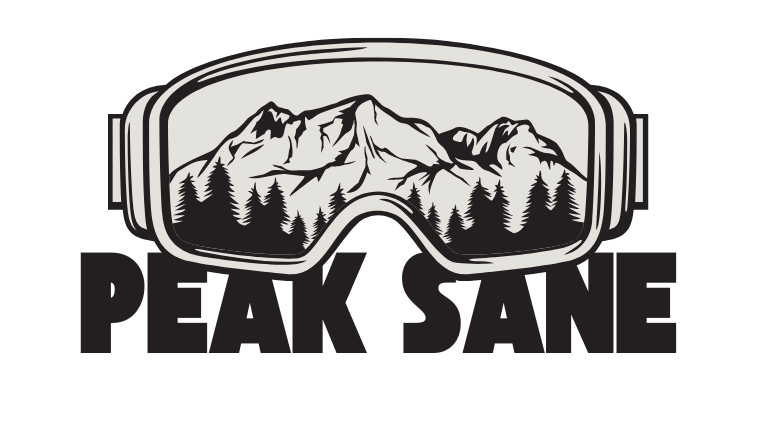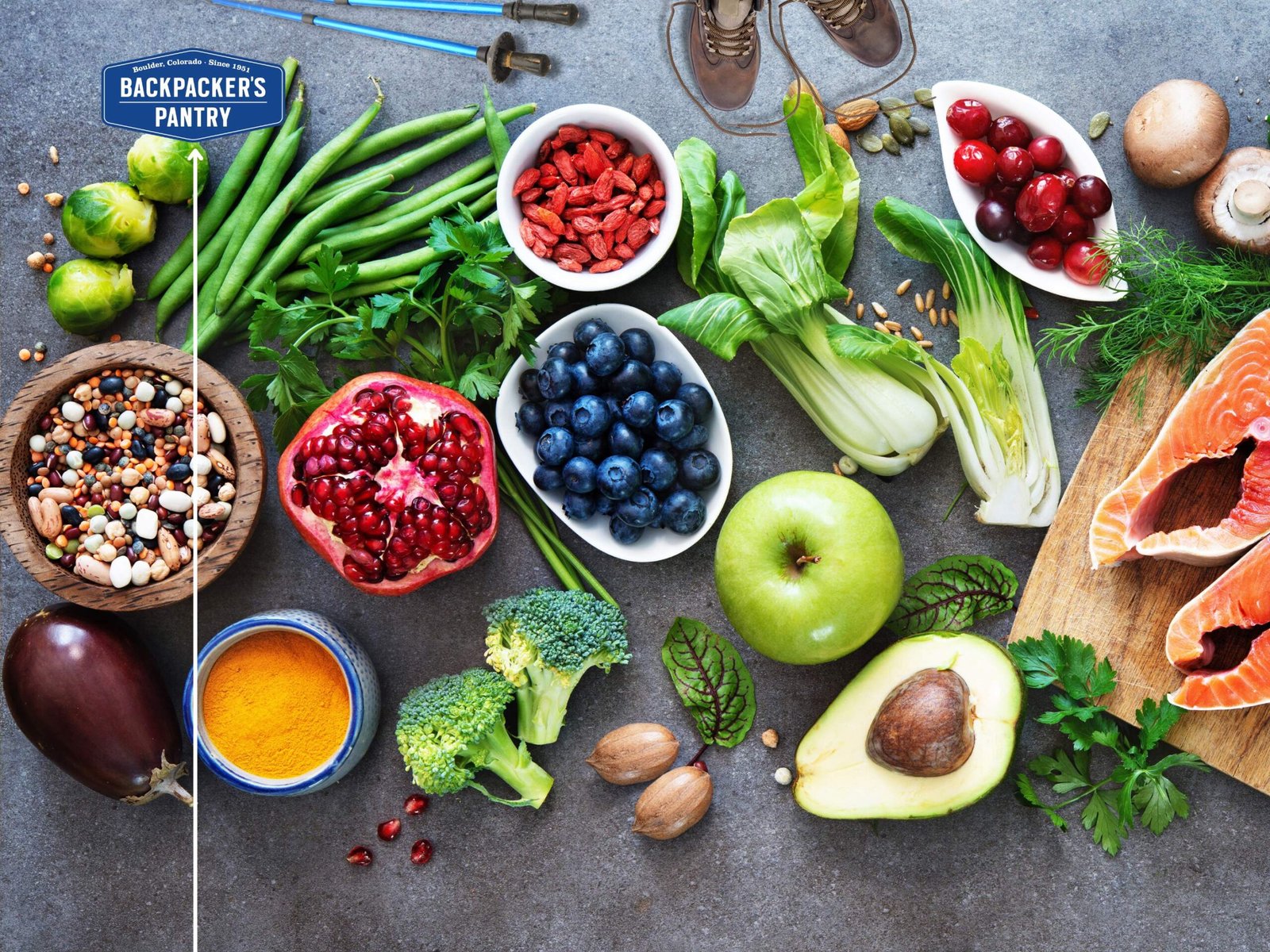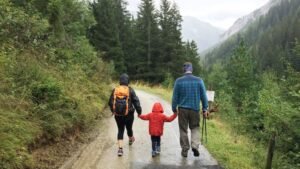Title:
The Best Foods for Before, During and After Your Hike
—
Meta Description:
Discover the top tips for hiking nutrition, from preparing your body for a hike to refueling after. Figure out what foods give you the best boost for your performance and recovery.
—
Introduction(150 to 200 words)
Properly fueling your body is one of the key things you need to do if you want to be successful and have a good time on your hike. Whether you’re walking for a few hours or doing a multi-day trek, your nutrition is essential for both energy levels and recovery. Eating the right foods before, after, and during your hike can mean the difference between shore leave and feeling fatigued, cramped up or even dehydrated.
Today, I want to dive into exactly what foods to eat on a hike while you are hiking and in recovery from the trail! We take you through your pre-hike breakfasts, on plane snacks and post-hike protein to keep those muscles purring.
—
1. Why You Need Hiking Nutrition (200 words)
First, a very short explanation of WHY. Hiking Nutrition? Though hiking can be quite strenuous, particularly on longer-distance or steeper trails. Continuous energy production for muscle support, hydration, and cognitive function is a very important part of what your body requires.
** Step Benefits of Hiking Nutrition: **
– Stable Energy: With the right food, you get a constant flow of energy that prevents fatigue and enables you to hike longer.
Increased Endurance — Proper Hydration and nutrition will help ward off muscle cramping, which leads to fatigue.
Quick Recovery – Consuming lost nutrients allows your muscles to regain strength and reduces the pain after a hike.
Strategically eating in this way not only allows you to be at your best on trail, but sets you up for recovery after the fact.
—
2. Before Your Hike (400–450 words)
The purpose of your pre-hike meal is to just establish a good baseline. We do this to give our body complex carbohydrates, healthy fats and even a small amount of protein so that we can remain as stable as possible energy-wise during the hike. But also remember to eat a balanced meal about 2-3 hours before your hike, as it will give your body time to digest and put out a balanced release of energy for the day ahead.
#Best Pre-Hike Foods:
Oatmeal with Fruit and Nuts: You have slow-releasing carbs from the oats as well as healthy fats and protein from the nuts. Add slices of fresh fruit such as banana or berry to rich vitamin and high-energy give a boost.
Whole-Grain Toast with Peanut Butter: This is a good mix of carbs, protein and fats. Serve with a banana to cut up or a dollop of honey.
Greek Yogurt, Granola and Honey: Greek yogurt is a protein powerhouse and calcium; granola delivers thicker carbs. Honey: A really quick energy boost without spiking your blood sugar.
Smoothie with Spinach, Banana, Protein Powder — A smoothie is a lighter and more easily digestible way to get in protein along with essential vitamins. Spinach adds vitamins (and a green color), banana provides potassium and protein powder keeps you feel fuller for longer keeping your energy high.
Foods You Should Not Eat Before a Hike :
Heavy, Fatty Foods: Ommit fried foods or very high-fat dishes that can crush you in the stomach and cause discomfort.
Sugary Snacks: Refined sugars in foods, like candy or pastries, will spike your energy only to be followed by a drop later on.
– Excessive Fiber: Even though fiber is essential, having too much of it can cause digestive problems while on the trail. Keep your intake of fiber in balance with protein and fat.
The correct meal before your hike can set you up right to begin with by providing lasting energy that is needed for whatever the trail has in store.
—
3. Hydrating Prior to Hiking (word-count limit 150)
Good hydration begins long before you even hit the trail. Hydration is also very important for regulating your body temperature and helping to keep you from overheating, supports digestion and helps with muscle function. Begin chugging water the day and night prior to your hike, and continue hydrating in the morning.
#Hydration Tips:
– Hydrate With Your Breakfast: Try to have 16–20 ounces of water with your initial meal before you start the hike.
* Electrolytes: For longer or more rigorous hikes, drink an electrolyte replacement beverage (Repsol Fast Fuel) or coconut water to balance salts and minerals.
Caffeine can dehydrate, so try not to drink too much of it. Coffee is good, but try to offset with lots of water.
—
4. Best Hiking Foods (450-500 words)
Your body requires many calories on any steep or even need trail hike. Maintain healthy energy levels and avoid crashes by giving your body the right fuel of small, frequent snacks rich in a combination of carbs, protein, and good fats.
#Best Hiking Snacks:
Trail Mix: Nuts, seeds, dried fruit (low in sugar), and a little chocolate give you fats and carbs for more sustained energy as well as nice basement of quick energy. Almonds and walnuts give you long lasting power, while dried fruit gives you a sugar shotgun blast to the bloodstream.
My go-to is Nature Valley bars or Fibre One though here are some other options to try:- Energy Bars: Get those with an element of taste and some degree of sugar such as oats, nuts and honey. Stay Away from Processed Sugar Laden Bars Hikers adore brands including Clif Bars, RXBARs and Larabars.
Fresh or Dried FruitBananas, apples, and dried apricots contain simple carbs and can aid in digestion and stabilization of blood sugar.
Enjoying nut butter packets can be another tasty option for a good source of protein and healthy fats.
– Jerky: They make both a beef and turkey jerky that has protein and is easy to carry without requiring refrigeration.
Hard-Boiled Eggs: Hard-boiled eggs are a good source of protein and healthy fat for quick hikes.
#How Often to Eat:
When you are hiking, make sure to eat every hour — even more if you hike a long or difficult trail. This keeps you from crashing for the same reason a few words ago: blood sugar levels. Avoid eating large lunches and dinners; try to consume small amounts more often.
Marlin drinks water during his hike:
Drinking enough water is equally important while hiking. Pack lots of water, especially for longer hikes. As a general rule, you should be drinking at least 8 ounces every thirty minutes but this can also increase depending on how hard your climb is and the weather.
—
5. Electrolytes on the Trail ( > 200 words)
Electrolytes — minerals such as sodium, potassium and magnesium — are important for fluid balance, muscle function and hydration in general. When you sweat, your body releases these important electrolytes, and depleting them could lead to cramps, dizziness or even dehydration.
Best Sources of Electrolytes:
Sports Drinks: Low-sugar electrolyte drinks (low- cal) — try Nuun or Gatorade Zero These offer electrolytes but are low in sugar to avoid sugar crashes.
Coconut Water: Rich in potassium and magnesium, coconut water is a natural source of electrolytes that can provide your body with essential nutrients needed after exercise rather than those found in commercial sports drinks.
Electrolyte Tablets: Electrolyte tablets are convenient and portable; you can simply add these to your water for an easy fix.
Pay attention to your waterConsuming when hiking. Excessive drinking without the intake of electrolytes can cause searing headache due to hyponatremia, which is a severely low sodium level in the blood. Drink more electrolyte-rich beverages or snacks to balance off the water and stay hydrated.
—
6. After Your Hike After hiking consume (450–500 words)//
After finishing your walk, it is incredibly important to restore glycogen stores in the muscles, repair muscle fibres and top up the fluid lost throughout the day Replenishing the body post-hike will help with recovery, reduce soreness and get you prepped for your next adventure.
#Best Post-Hike Foods:
– Grilled Chicken with Quinoa and Fresh Vegetables: Perfectly portioned meal of lean protein, whole grains, and veggies for post-workout recovery. Quinoa: Significantly more carbohydrates, as well as protein Chicken: Lean protein for muscle repair
Protein Powder, Banana & Spinach Smoothie: Having a smoothie is a good option to quickly refuel after the hike. Protein powder to repair muscles, banana for potassium (to help prevent cramps), and spinach for vitamins and minerals.
Salmon: Your body needs omega-3 fatty acids to dampen inflammation, and salmon is a great source.pairs well with sweet potatoes These sweet potatoes are packed with complex carbs to replenish glycogen levels and fiber to help digestion.
Greek Yogurt with Berries and Honey: Greek yogurt gives your body the protein it needs while berries (dark colored fruits) have antioxidant powers that reduce inflammation and promote recovery. Combines natural sugars with honey to refuel your energy.
Rehydration Post Hike
After your hike, remember to rehydrate. You may also want to drink a drink with electrolytes to replace those lost minerals as well as water. Try to drink 16-24oz of water for every pound that you lost in the hike.
Eating properly after a hike and staying hydrated is going to help keep fatigue at bay, you will be out on the trail again soon.
—
7. Proteins for Recovery — Proteins help during the recovery phase. /*!The Role of Protein in Recovering (200 words)*/
After the hike, protein becomes paramount for effective recovery. After
After a grueling ordeal of hiking your muscles will require protein for recovery so they can be rebuilt. Consuming a high-protein meal or protein-rich snack 30 minutes to an hour after your hike can help promote recovery and minimize soreness.
Top Protein-Recovery Choices
Grilled Chicken or Turkey: These lean meats are loaded with great proteins.
Eggs — One way to get soluble fats and amino acids with this convenient food source.
Protein Shakes: Protein shaker shakes are a quick and easy option if you don’t feel like cooking anymore after hiking, make a shake with some whey or plant protein powder.
—
8. Day Hike Meal Plan (250–300 Words)
Here’s an example of a day-hiking meal plan to give you some idea on how to put it all together:
Pre-Hike Meal (2-3 hours before hiking):
Oatmeal with almond, chia seeds, and banana.
– 16-20 oz of water.
#During Hike Snacks:
Trail mix: Nuts, seeds and dried fruit
1- An energy bar or protein bar
– Fresh apple slices.
— 8 oz water every half hour
– 1 electrolyte drink or coconut water
#Post-Hike Recovery Meal:
Grilled Salmon, Sweet Potato + greens.
Greek Yoghurt w/berries — Add a few tbsp. of mixed berries into some Greek yoghurt
– Water 16-24oz with an Electrolyte Additive
It fills in the gaps to make sure you get enough carbs to successfully fuel up without bonking during your hike, and it provides enough protein at other times that you fully recover so you can do it all over again.
—
Conclusion (Only 150-200 words)
When it comes to the nutrition side of hiking, it goes beyond what you put in your body while on a trail. Properly fuelling your body before you go off to hike can make the difference between a good and a bad day out on the trails, not to mention make or break it for recovery when receiving essential nutrients after a hard day’s work. Eating balanced meals, it means that you gonna get all the energy that your body needs in order to function properly by feeding yourself with complex carbohydrates, good fat & protein.
So don’t forget to drink water all during your walk including consuming electrolyte drinks or foods, that will hopefully help prevent muscle cramps and tiredness. Hiking, whether doing a short day hike or setting off on a multi-day trek, it is important you eat and drink properly in order to have an enjoyable experience as well as quicker recovery after the journey.
Therefore, the next time you venture into the wild, make sure to get your system charged with appropriate nourishments.
—
FAQs on Hiking Nutrition:
1. Do I need to drink on a hike?
8 oz water/30 minutes of hiking, increase for hard work or heat
2. The Healthiest Snacks To Take On A Hike
Trail Mix Trail mix is a great on-the-go option packed with energy to keep you going during your hike.
3. When Should You Eat After A Hike
A recovery meal is better if ingested 30 minutes to an hour after completing the hike, and − comprise of mainly protein with carbohydrates.




